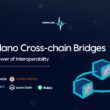Disclaimer: The following is an opinion article with the goal of shining a light on the current governance development in the Cardano blockchain. It’s not intended and should not be perceived as Fear, Uncertainty or Doubt (FUD). On the contrary, I hope this article helps to improve on-chain governance moving forward.
Governance path on Cardano
Charles Hoskinson’s main critique of bitcoin is its inability to improve itself and evolve as the times require. From implementing NFTs (although the bitcoin community found a way with the recent surge of ordinals) to more dire future cases such as quantum resistance. His solution to this problem is implementing a governance system on Cardano that would allow the community itself to propose and decide on future implementations, upgrades and changes.

This important step in the development of Cardano was identified in the fifth and final milestone in the roadmap, the era of Voltaire. Named after the French philosopher famous for his critique of Christianity, tyranny and slavery. The main difference between this final era and the four previous ones is that in this instance the success doesn’t depend solely on the quality of the code developed by Input Output Global (IOG), the software company behind the development of Cardano. This era’s success, and Cardano as a whole, now depends on its users and the decisions they make.
During the Byron era, the success was 100% dependent on IOG’s code and delivery. Shelley opened the production of blocks to the community, which needed the participation and involvement of people that wanted to invest time and money in setting up validators. However, as the bitcoin empiric experience shows, if the economic incentives are in place people will show up. Next, with the Goguen era, smart contracts were introduced and although the initial experience of developing dApps for Cardano was challenging, the community rose to the occasion and developed tools, libraries and compilers to ease the workflow and learning curve necessary. The fourth era named Basho, which we are still in, started introducing and developing scaling solutions such as Mithril, Hydra and input endorsers. Which for the most part it’s also mainly an effort from IOG. But now with Voltaire, the biggest effort for its success is on the community itself. There are technical developments necessary of course, but for the first time in my opinion, the community has now the responsibility to make it work. Otherwise, there are not enough lines of code that could save the project from itself.
The Catalyst Experiment
Project Catalyst is an experiment that is currently undergoing its tenth iteration with Fund 10. This is a “decentralized” way that the Cardano community can submit proposals to be funded by the treasury of funds collected with each transaction on the blockchain. Each iteration has a number of challenges with certain criteria and objectives where anyone can submit a proposal to build something that can advance Cardano. Whether it has been successful or not so far, it depends on who you ask. Being as objective as possible, the team behind it (from IOG) has been trying to fix issues and improve the user experience with each iteration. Still there are lots of things to solve, address, modify and improve. However, it’s the only (that I know of) decentralized community fund in any blockchain ecosystem where it’s the same community that votes which proposals get funded.

All that glitters is not gold, a recent SCATDAO’s tweet shows that there are 57,118 wallets registered in fund 10 with 4.5 Billion total ADA in voting power. The top 1.5% of all wallets control 56% of all voting power. Meanwhile, the bottom 50% of all wallets control 1% of all voting power and the bottom 85% of all wallets control 8.5% of all voting power. Like Liberlion points out in his quote tweet, this shows that the Project Catalyst experience is not that decentralized nor democratic, at least in voting power, which makes it a plutocracy disguised as liquid democracy essentially.

This has been an experiment on both governance and decentralized financing on a global scale, using Cardano’s community as the guinea pig. From a governance point of view, and with the recent analysis by SCATDAO about the wallets participating in Fund 10 we can take some notes. For starters there are 3 million ADA wallets but only 57 thousand are registered to vote. This could be for several reasons, from users having more than one wallet and only using one to vote in Catalyst. To users apathy and/or unawareness that Project Catalyst exists and the importance to participate in it. Afterall, the ADA being requested and granted is the one that is collected from each and everyone of Cardano’s users when doing a transaction on the blockchain.
My takeaway from this analysis and the current situation of Project Catalyst, is that the vast majority of Cardano’s users don’t care about governance, at least not right now during the depths of the bear market. 57 thousand of 3 million wallets is 1.9% participation rate. Imagine a general election where only 2% of the population voted, would the result be indicative of the general public’s opinion? Of course not and since in Cardano 1 ADA = 1 vote, we are left with a plutocracy of very wealthy individuals making the real decisions while giving the appearance of being democratic. Why should we expect for Voltaire to be any different then?
The first on-chain vote
In May of 2023 the first on-chain vote was organized by the Cardano Foundation for stake pool operators (SPOs) to decide on the parameter changes of k and minpoolcost. These are two very important parameters that directly influence the size and profitability of stake pools. As such, there are different positions and opinions on the decision to change them and how much since any change would affect every SPO to some extent. The vote was conducted on-chain and only SPOs were allowed to participate, having to sign their ballot and cast their vote using their pool’s certificate. 599 SPOs participated, representing a total of 796 validators of which 287 were multipools (single entity managing several validators) and 509 were single pools.

The majority voted on increasing k to 1000, from the current value of 500, this means that the saturation point would change from 72 to 36 million ADA and halving minpoolcost to 170 ADA. However, right now a new Parameter Committee of handpicked individuals of which at least two of them are multipool operators, have unilaterally decided against the will of the many to not increase k. Who are the main beneficiaries of not increasing k? Those who operate one or more stake pools with over 36 million ADA delegated, because they would lose income and would potentially have to open another pool to retain the surplus of delegation.
So what can we learn from this first on-chain vote organized by the Cardano Foundation? Similarly to what we have seen with Project Catalyst the first impression is that of democratic process where any ADA holder (or this specific case SPOs) can have their voices heard and the result would reflect the opinion of the majority. But on closer inspection we can see that it’s just a façade for the real decisions are made by a small group of very wealthy insiders that go all the way back to the “Family and Friends” starter stage of Cardano development.
A change in philosophy
During the Scotfest, an event that took place in Edinburgh on November 18th and 19th 2022 that signified the start of the age of Voltaire, Charles Hoskinson presented the Cardano Improvement Proposal (CIP) 1694. This is the “official” proposal for a governance system on Cardano with the backing of Charles and IOG but it’s not the only one. There was another proposal, numbered 1776, authored by Thomas Stokes which proposed another path to reach a governance system on-chain but it now appears to have been deleted from Github. But if you speak Spanish you can find my translation here.
In February 2023 the first workshop organized by IOG in Colorado was conducted regarding CIP-1694 where a select few of Cardano “influencers” were invited to discuss the proposal. The proposed changes were added later, in March, to a new version of the proposal. One of which is the bootstrapping phase that I will discuss in the next chapter of this article. Right now, I want to focus on the development process of this CIP which has been, in my opinion, rushed thus the change in philosophy title for this chapter.
Cardano differentiated itself from the rest of the blockchain projects by following a meticulous development process of “moving slow and building” in contrast to Ethereum’s philosophy of “moving fast and breaking things”. It took Cardano five years of scientific, rigorous and peer-reviewed development to get up and running on the technical side but now we are expected to have a decentralized governance framework running in a year. Given that this is the most important feature for this blockchain’s success, which could make it or break it, I must implore the people fast tracking this CIP to take a moment and remember what made Cardano great. I don’t know if it is due to regulation pressure, Charles wanting to distance himself from the day to day operations due to legal reasons or some other piece of information I’m missing but it seems that we are moving too quickly on a very important matter that requires lots of discussions, debates and thinking.
For example, why are we relying on computer scientists and technical people to come up with a decentralized governance system? This Twitter thread by nullHashPixel sums up my argument perfectly. He uses the example of Switzerland’s direct democracy system to critique the representative model proposed in CIP-1694. Every system has its pros and cons of course, and every system can be exploited by malicious actors from inside and out of the ecosystem for their own benefit. But we shouldn’t forget why we are building a decentralized financial operating system either. If the end result will be a banking system 2.0 ruled by a different elite class then what’s the point of it all?
The Cardano Foundation is based in Switzerland. I proposed that we tap into the great minds of political scientists from this country’s great universities so they can guide and advise us regarding direct democracy systems. The same way IOG reached out to the great minds of Edinburgh, Tokyo and Athens universities to research complicated decentralized and distributed computer systems, we should be doing the same with our governance system. It would be very arrogant to assume that just because someone has great technical skills that they can also build a political system, because let me tell you unlike computers, humans don’t usually act in a rational way.
Power corrupts
And absolute power corrupts absolutely. My main concern regarding CIP-1694 arose after the March 2023 update where the bootstrapping phase was added. During this initial phase the constitutional committee will have super powers, let’s remember that the constitutional committee’s power is limited by Dreps who can move forward with a vote of no confidence. However, this is not possible during this initial bootstrapping phase.

These super powers are described in the bootstrap phase from CIP-1694 as follow:
“Special provisions will apply in the initial bootstrap phase. Firstly, during the bootstrap phase, a vote from the constitutional committee is sufficient to change the protocol parameters. Secondly, during the bootstrap phase, a vote from the constitutional committee, together with a sufficient SPO vote, is sufficient to initiate a hard fork. No other actions are possible during the bootstrap phase.”
I have raised this concern with the community in the past but the main response seems to be that the situation now it’s not different. IOG could change parameters single handedly and without the community consent. Which is true, but I thought the idea of decentralized governance was to move to something better, not give a framework to the current bad situation we found ourselves in.
Another concern I have regarding the constitutional committee, which any student of history will probably agree with, is regarding their transitional nature. In the chapter titled Role of the constitutional committee it reads: “The answer is that the committee solves the bootstrapping problem of the new governance framework. Indeed, as soon as we pull the trigger and enable this framework to become active on-chain, then without a constitutional committee, there would rapidly need to be sufficient DReps, so that the system did not rely solely on SPO votes. We cannot yet predict how active the community will be in registering as DReps, nor how reactive other Ada holders will be regarding delegation of votes.”
Basically, what they are saying is that they don’t have confidence that the community is ready, willing or able to take on the mantle of decentralized governance and thus we need a special group of insiders to guide us. If that’s the case, and tying it back to the change of philosophy, we should be focusing on nurturing and organically growing the community to be prepared to take on this immense challenge.
Furthermore it reads “Thus, the constitutional committee comes into play to make sure that the system can transition from its current state into fully decentralized governance in due course.” This is another extract that concerns me, the constitutional committee will exist as a transition between the centralized and decentralized governance systems. But let me ask you for an example in human history where a small group of people with special powers have given them up willingly to the masses.
Because this is the cherry on top from the bootstrapping phase chapter: “The bootstrap phase ends when a given number of epochs has elapsed, as specified in the next ledger era configuration file. This is likely to be a number of months after the hard fork.” They are basically saying that the bootstrap phase, the period where the constitutional committee has super powers to change any parameter in the blockchain, doesn’t actually have an end date. Now when did that hear that in the past? To avoid any historical baggage by associating it with real life events, here is Palpatine as a fictional example:
Liquid democracy or plutocracy?
With this article I wanted to shine a light and document my concerns regarding the current situation regarding governance in Cardano. I provided two, not so encouraging, examples of decentralized governance that have taken place so far. The first was Project Catalyst, which is currently running its tenth iteration and although it has been steadily improving, the recent SCATDAO’s analysis of the voting power shows us that reality is not what it seems at first glance. The second example was the SPO vote in which the Parameter Committee decided to ignore the popular result and implement their own opinion on the matter. Neither of them provide great assurance that the conditions are met to move forward this December with the ratification of CIP-1694 in its current state.

That’s why I wrote this opinion article, to raise my concern that we are moving too quickly and we are still not prepared as a decentralized community to move into the framework proposed by CIP-1694. Are we laying the correct foundations for the success of Cardano in the next five, ten or twenty years? I believe that we are not, just like the technical side took five years, governance will probably take the same or more time. We all know what happens when code is rushed, but I don’t think enough people realize what happens when a political framework is rushed. The ramifications can be far more exceeding and difficult to solve. We should also be honest with ourselves and realize that Cardano is currently a plutocracy, some people may be okay with it, but I think the majority of its users deserve the chance to a decentralized liquid democracy as it was promised.











IOG knows that a functioning decentralized voting system that does not converge on plutocracy can not be accomplished on any blockchain with out a zero knowledge proof sidechain. This is because markets for votes and delegation can not be prevented without a ZKP sidechain.
In fact a market for voter delegation already exists in Cardano Catalyst as seen at the link below.
https://www.youtube.com/watch?v=qhG2EiFJrRk&t=1472s
So IOG must install a constitutional committee to ensure that bad actors do not empty the Cardano treasury or otherwise hijack the blockchain until a ZKP voting system can be built on a Cardano sidechain.
Surely that is why Mithril and Midnight are being developed.
The following explains more on this topic and proposes a voting system for Cardano that is likely to work.
It is based on a voting system that evolution has perfected over the course of millions of years.
https://github.com/johnshearing/beemocracy#readme
Terrific essay on the udder inadequacy of CIP-1694. While I’m appreciative of IOG’s invitation to attend the Governance workshops, I was a lone voice in stating clearly CIP-1694 is a guaranteed failure. In fact, the hostility toward my concerns has grown without any attempt at resolving the concerns. Thus the community needs to understand that open competition to centralized control of Cardano is the design purpose of CIP-1694. There is in fact, nothing in the design that attempts to guarantee decentralization.
I thank Latinstakepools for publishing their opposition to CIP-1694. Sane members of the Cardano community who do not want corruption to be the foundation of the Cardano community need to join them now before it’s too late.
C’est une grande et bonne annalyse…
Ce qui est vrai est que; quelques soient ce que les responsables de Cardano utilisent comme gouvernance, ils veulent en premier, l’accomplissement de leurs objectifs qu’ils se sont fixés dès le début de leur lancement, c’est logique pour tout visionnaire. Mais aussi, ils veulent aider aussi les autres à atteindre les leurs. En revanche, ce qui est clair et certain, ils ne pourront pas laisser le pouvoir à tout le monde de décider, il y aura toujours une équipe au centre qui aura un mot à dire… Personne ne peut jamais donner, entièrement, son pouvoir à qui que ce soit, nous ne devons pas nous voiler la face à ce sujet.
Félicitations pour cet article, il est génial. 🤝👏👏👏